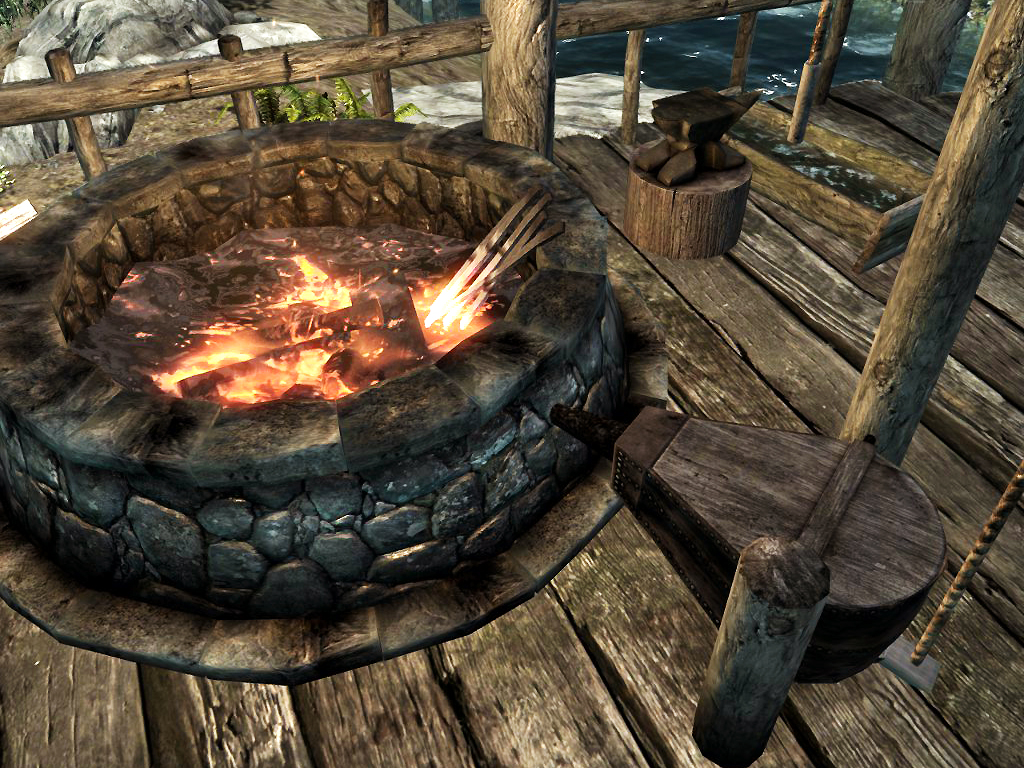If you don't know what Skyrim is, then we probably couldn't be friends. For those of you who aren't as nerdy as me, I'm sorry. Hopefully even without basic knowledge of Skyrim, some of the economics will still come through.
The Elder Scrolls V: Skyrim was released on November 11, 2011, and is objectively one of the greatest games ever made. To those who don't know what it is, you can basically think of Skyrim as a big medieval/fantasy themed roll playing game where you run around and fight dragons and stuff. (Even though it's so much more than that).
 |
| A blacksmith's forge |
In Skyrim, one thing that a character can do is become a blacksmith. As one specializes further and further in blacksmithing, one is able to use more and more complex inputs to produce more valuable outputs, using the same amount of overall labor as before. Consider the following examples.
Skills, including the blacksmithing skill, range in level from 1-100. A level 5 smith, being fairly low on the scale, can only forge iron armor. We'll begin with the example of the iron shield.
The iron shield requires four pieces of iron ore and a leather strip. These inputs, on their own, have a combined value of 11 gold. However, in the hands of a smith can smelt the iron ore into iron ingots and then forge the ingots and strip together, these create an output with a value of 60 gold -- and iron shield. This is because a smith can take these inputs, which have very limited uses, and turn them into something that is more useful, and therefore more in demand. So the level 5 smith, adding his labor to these inputs, increases their value by 49 gold.
 |
| Ebony Armor is totally wizard. |
These principles hold true throughout Skyrim -- whether it be in making potions, forging armor, or creating enchanted items -- and they hold equally true in our world. The reason that the average American today lives in more comfort than the kings of 500 years ago is because of people who have been able to take existing inputs and, by mixing in their skills and labor, create something much greater in value.
No comments:
Post a Comment